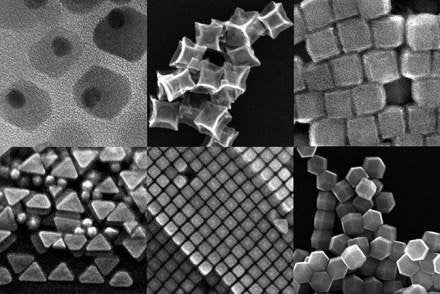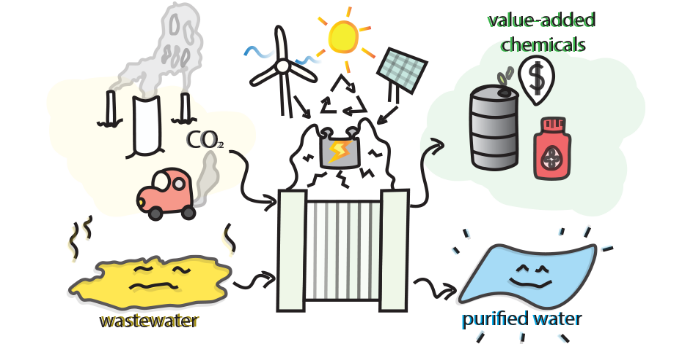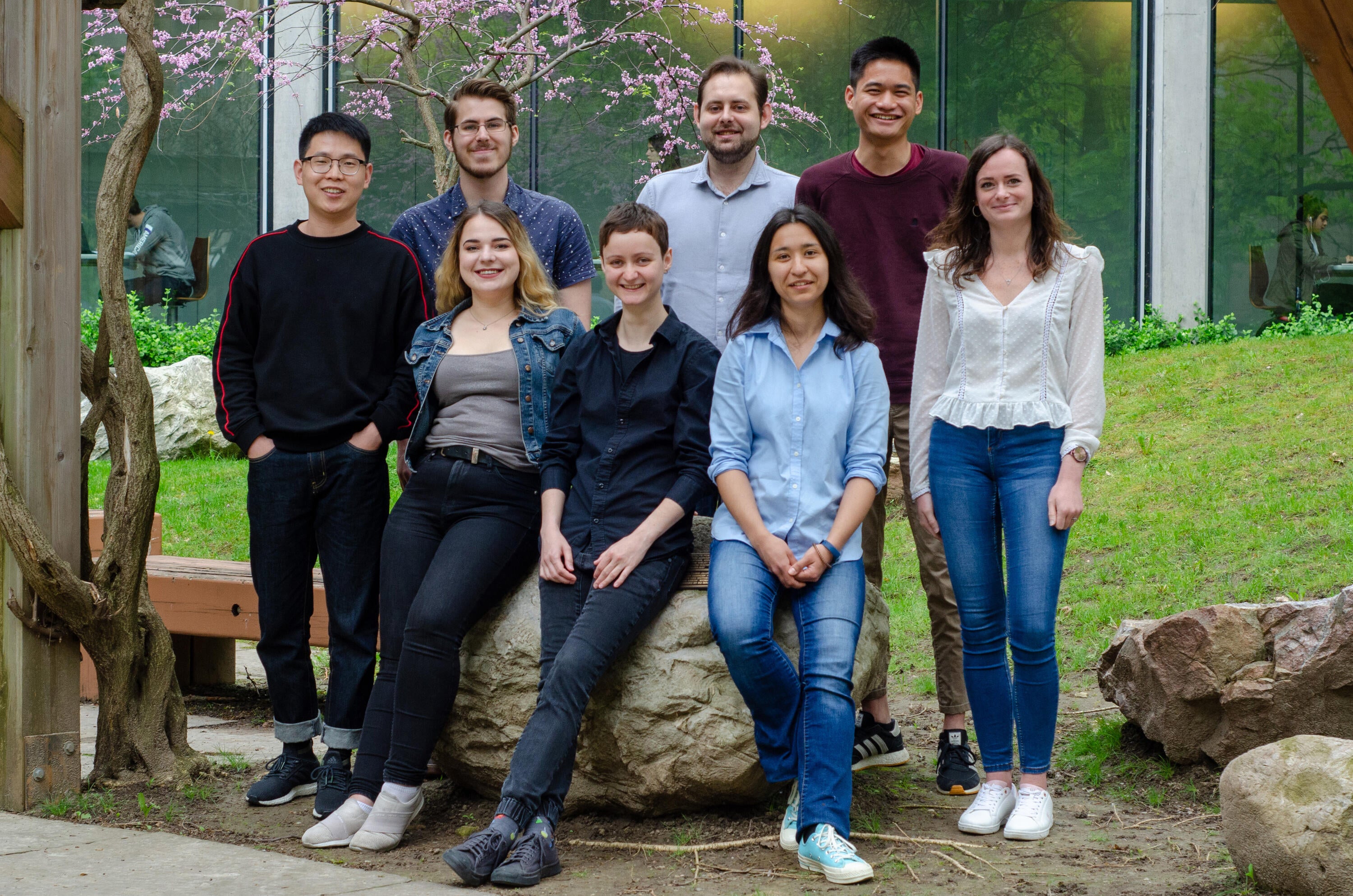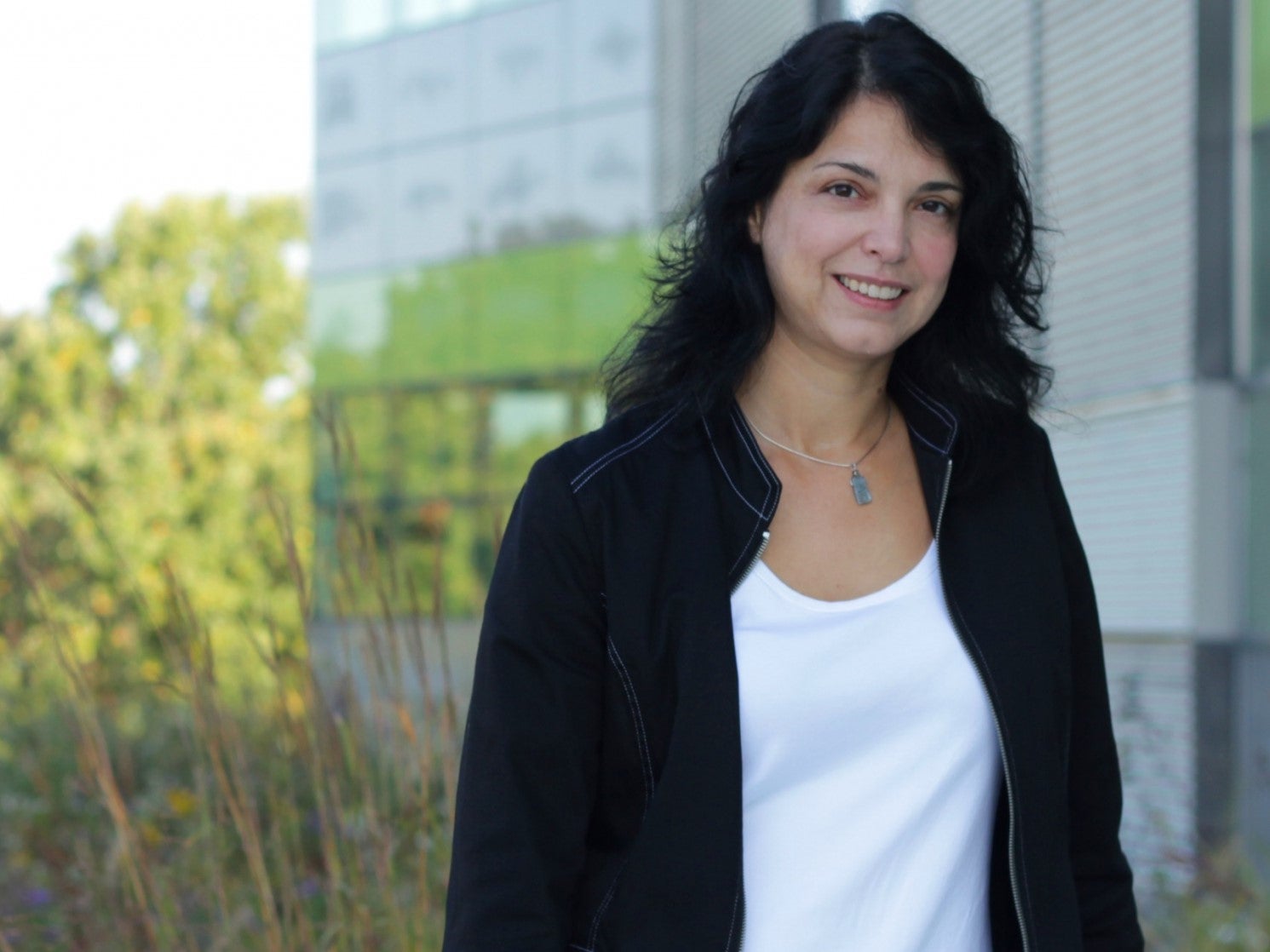In
2019,
the
WIN
membership
expanded
beyond
the
Faculties
of
Science,
Engineering
and
Mathematics
to
welcome
the
first
researcher
from
the
Faculty
of
Environment.
Goretty
Dias
is
a
sustainability
scientist
and
industrial
ecologist
and
is
an
associate
professor
in
the
School
of
Environment,
Enterprise
and
Development.
With
her
background
in
natural
sciences
and
engineering,
Professor
Dias’
research
has
evolved
to
focus
on
Life
Cycle
Assessment
(LCA)
and
other
tools
to
create
more
sustainable
agriculture,
bioproduct,
and
food
systems.
In
2017,
Professor
Dias
published
a
popular
article
which
provided
an
environmental
and
economic
overview
of
pyrolysis
technologies
for
converting
ligno-cellulosic
biomass
into
biofuels
and
other
bioproducts.
On
the
left:
a
collection
of
TEM
images
of
nanocrystals
demonstrating
precision
with
which
Prof.
Klinkova’s
lab
can
control
its
size,
shape,
surface
morphology,
and
surface
chemistry.
On
the
right:
Cartonistic
diagram
showing
a
proposed
sustainable
eco-system
which
converts
waste
into
valueadded
chemicals
using
waste
CO2,
sunlight,
renewable
electricity
as
inputs
and
water
as
by-product.
In
2019,
a
research
collaboration
began
between
Dias
and
Assistant
Professor/Early
Career
Researcher
Anna
Klinkova
from
the
Department
of
Chemistry
on
the
conversion
of
industrial
pollutants
into
value-added
products.
Specifically,
CO2
and
nitrogen-based
pollutants,
such
as
ammonia,
can
be
turned
into
specialty
chemicals
and
nitrogen
fertilizer,
contributing
to
the
growth
and
goals
of
a
circular
economy.
Many
researchers
around
the
world
are
primarily
focusing
on
the
direct
electrochemical
conversion
of
CO2
into
various
chemicals
such
as
fuels
or
feedstock
for
other
useful
materials
(formate,
formaldehyde,
formic
acid,
methane,
methanol,
ethanol,
etc).
However,
such
substances
are
usually
lowerpriced
commodities,
and
many
conversion
processes
are
proving
to
be
economically
disadvantaged
in
terms
of
scale-up
costs.
Building
on
the
results
first
published
by
Klinkova’s
lab
in
ACS
Sustainable
Chem.
Eng.
in
2019,
this
joint
project
focuses
on
advancing
electrochemical
methods
to
convert
CO2
via
electrocarboxylation
in
an
electrolyzer
operating
with
non-sacrificial
anodes.
In
this
approach,
CO2
is
made
to
react
with
other
lower
value
substances
that
are
readily
available
at
the
industrial
scale,
resulting
in
the
production
of
industrially
relevant
carboxylic
acids.
To
further
improve
the
commercial
potential
of
this
CO2
reduction
approach,
Professor
Klinkova’s
lab
has
demonstrated
that
coupling
this
chemistry
with
anodic
oxidation
of
wastewater
components
is
a
means
to
minimize
energy
requirements
of
operating
the
electrolyser,
while
introducing
additional
environmental
benefit.
Researcher
Profiles:
Professor Anna Klinkova received
her
undergraduate
degree
from
Saint
Petersburg
State
University
in
2009
in
organic
chemistry,
followed
by
a
master’s
degree
in
photochemical
sciences
from
Bowling
Green
State
University
in
2011,
sparking
her
interest
in
chemistry
for
sustainable
energy
generation,
studying
alloy
and
hybrid
semiconductor
nanocrystals
for
incorporation
into
solar
cell
devices.
She
continued
her
graduate
studies
on
nanomaterials
chemistry
in
the
Kumacheva
group
at
the
University
of
Toronto,
earning
a
doctorate
in
Chemistry
in
2015,
followed
by
a
prestigious
Connaught
Postdoctoral
Fellowship
with
the
Sargent
group
in
the
Electrical
and
Computer
Engineering
Department,
also
at
the
University
of
Toronto.
Professor
Klinkova
joined
the
University
of
Waterloo
in
2017,
where
her
research
goals
are
to
build
functional
(electro)
catalytic
devices
for
energy
and
sustainability
needs,
and
studying
the
effects
of
nanocrystals
for
their
physiochemical
properties
for
thermal,
photo,
and
electrocatalysis.
Professor Goretty Dias
received
her
undergraduate
degree
from
University
of
Guelph
in
1993
and
a
PhD
in
Atmospheric
science
in
1998.
In
her
undergraduate
degree,
she
was
introduced
to
the
concept
of
how
biology
and
associated
mass
and
energy
fluxes
influence
the
atmosphere,
which
led
to
her
work
on
spectroscopic
methods
to
measure
trace
gases
from
agriculture
for
her
PhD.
During
her
post-doctoral
work
on
metals
and
trace
gases
in
Environmental
Engineering,
she
became
interested
in
the
importance
of
economics,
business,
and
policy
on
decisionmaking,
and
turned
to
life
cycle
thinking
and
LCA
as
a
way
of
evaluating
and
communicating
environmental
impacts
in
a
holistic
way.
She
worked
for
five
years
in
consulting,
working
on
evaluating
technology
projects.
Her
academic
and
consulting
experience
has
made
her
an
expert
in
the
LCA
of
biomass
systems.
She
joined
the
Faculty
of
Environment
in
2010
and
has
been
working
on
evaluating
systems
and
technologies
related
to
biofuels,
bioproducts,
and
food.
She
has
been
expanding
her
LCA
work
to
other
systems,
such
as
construction
materials
and
green
chemicals,
through
collaborations
with
engineers
and
scientists
at
various
universities.



